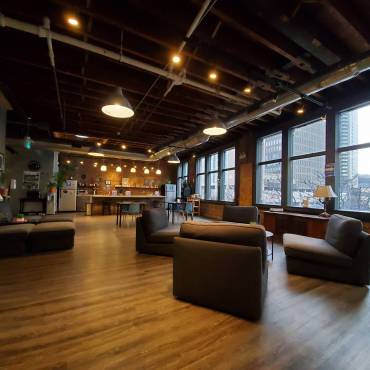For years tech startups have been disrupting the way that we work embracing remote work culture and adopting flexible policies. Tech workers enjoy perks like unlimited vacation time, reduced hours of work, stock options, and strong work-life balance. These policies often result in happier, more loyal and productive employees who feel content about their work.
If there’s one thing that this pandemic has shown us, it’s that we are ready to evolve the way we approach work culture. The corporate “line” many employees have been delivered in the past decade when it comes to remote work is “we’re just not set up for that”, or “we’ve tried it in the past and it wasn’t successful for us” leaving employees with no option for remote work. A large reason why employers were reluctant to let their employees work from home has nothing to do with corporate infrastructure and everything to do with trust and control.
But in March of 2020 all of that archaic corporate control and rigidity went out the window when the pandemic hit and offices had no choice but to allow employees to work from home in order to continue to conduct day-to-day business. This was a monumental shift that forced a seismic change in the way that companies function and manage their workforce.
For the first few months of the pandemic, many employees were quite happy to work from home, especially those who had rigid employers who weren’t accomodating in this way. But the lustre for many wore off after a few months when spouses and children were also forced to do their work and school from home due to the ongoing effects of the pandemic. People began missing the comradery of the office and the routine of having somewhere to go. Some were pulling their hair out commuting from the kitchen table to the living room each day, with nowhere else to turn. And others were complaining of back pain or shitty internet service.
One thing that is for certain is that folks are eager to get some semblance of a routine back in their lives and create a healthier division between work and home.
Now that we’re more than ten months into this Global pandemic, companies are figuring out that they perhaps don’t need big expensive offices anymore and some are making bold moves to move their entire companies to remote work. Companies like Shopify, Facebook, Amazon, Coinbase, Microsoft, Upwork, and Square have all announced that they will allow, encourage or require workers to work from home permanently. These bold few companies will pave the way for many more to follow.
But what does the future look like for office culture? Is it a permanent retreat from big office headquarters with more regional offices? Is it a small centrally based HQ with a remote workforce? Or a hybrid of all of these things which allows for greater flexibility?
I believe the latter.
While working at home has been eye opening for many companies who were previously unable to accommodate virtual workers, it can also take away from interdepartmental collaboration, innovation, and team building that is a natural byproduct of office culture. These are things that we will have to solve for as more of our workforce becomes remote. The technology available to us now is amazing, but it isn’t perfect either. We’ve all been on video conferences where someone’s face freezes mid sentence, deafening feedback disrupts the call, someone forgets they’re not on mute, or a dog is barking in the background. The other challenge is that companies may have workers who live in remote areas with unstable internet connections. Perhaps they commute from a rural farming town, or are limited in the types of service that is available in their area. Many companies will cover the monthly cost of internet service but others do not, leaving frustrated employees with poor internet access. We have to find a way to bring everyone along, so that everyone has access to the tools and resources they need to do their jobs no matter where they are.
I believe coworking will play a massive role in the future of work culture. We’ve always catered to entrepreneurs, small teams and individuals who need a place to hang their hat and increasingly companies reducing their HQ overhead will look to Coworking spaces to support their employees. Coworking creates a natural sense of community and can help build corporate identity and culture by offering camaraderie, a place for innovation, and a reliable work space to be productive.
With the changing nature of the workforce and more companies choosing to modernize their approach to remote workers, coworking spaces will act like local hubs within communities providing a built-in community and an opportunity for employees to be a part of the broader business ecosystem within their own neighbourhood. Imagine a future where nobody has to leave the town or city they live in to go to work. You could work for a company in Toronto but live in Thunder Bay. This is the way forward. Housing options suddenly change and communities outside of metropolitan hubs have a chance to grow and thrive, and people will ultimately be much happier.
With coworking spaces available to remote entrepreneurs, teams and employees the challenges of working from home can be solved. People can get out of their houses daily or just a few days a week, work around other people who are inspiring and prompt innovation, and work in an environment that mimics an office setting, but without the long commutes. It’s a win for everyone!
But the question is, will companies be brave enough to forge ahead in this bold new direction en masse after the pandemic ends, or will we return to status quo, but just with more hand sanitizer?
Selina Eckersall
Executive Director, CoMotion Group Inc.







